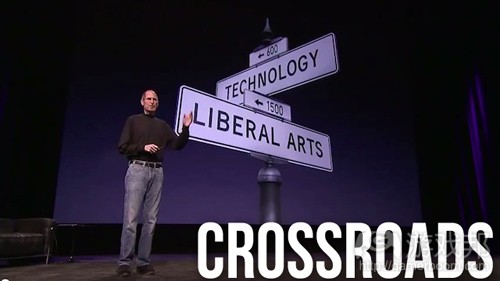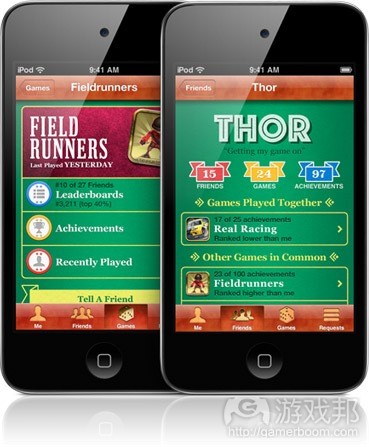游戏或成苹果扩大影响力的新领域
作者:alfredo gil
苹果需要游戏,正如游戏需要苹果一样。游戏业务对于当前的苹果来说,就像乔布斯在谈论Apple TV时所言,只是一种“兴趣爱好”。Tim Cook也同意他的说法——你们可能认为仅凭这种兴趣不足以征服世界,但是事实上却完全可以!乔布斯曾说过一句名言:苹果致力于成为科技与人文的交点,因此苹果更需要为电子游戏的发展做出贡献,因为后者也是融合科技与人文的领域。
凭借App Store,苹果成功地踏进了游戏产业,并且这种尝试也并非巧合。但苹果现在已经不能再以一种业余的眼光看待游戏业务。
无数苹果用户都很满意在iPhone和iPad上的首次游戏体验,但是如果在这时将他们引向Game Center情况又是怎样?在游戏社区中这算是一个“让人尴尬的”应用。苹果总部缺乏对游戏的激情。苹果一直以高质量著称,而如果继续对Game Center这个不甚理想的“半成品”放任不管,那就会给自己的游戏业务造成消极影响。苹果已经多次尝试进军游戏领域,其中最成功的一次便是70年代末期的Apple II,而最糟糕的则是Pippin(游戏邦注:苹果在1990年代中期开发的游戏机与多媒体播放机平台)。不过这些都是往事了,不能代表现在的苹果。
我之所以批评Pippin是因为它将一种自由放任方式引进苹果游戏业务,并持续了10年多的时间,而最终将游戏市场拱手让给了微软。这就引出了关于封闭式系统与开放式系统的争论,但这也只是关于内容管理优劣的问题。也许乔布斯不是一名称职的游戏玩家,但是他早在1990年就发现了电子游戏媒体的潜力,特别是在教育方面——这也是苹果现在正努力拓展的一大市场。
根据Walter Isaacson所撰写的《Steve Jobs》传记,乔布斯最终明确了Apple TV的方向。而我也希望游戏也能够呈现在这种平台上。因为之前已经有人尝试过这种方法了。早在10多年前微软就已经创造出可连接至电视屏幕的Xbox游戏机,并对索尼的PS2操作系统发起挑战。但是这时候还不能说索尼失败了,而直到Kinect的出现才最终奠定了微软的成功,特别是当他们开始将Kinect整合到Windows平台上时。如今更换了新首席执行官Kazuo Hirai(之前PlayStation的总工程师)的索尼开始进行重组。索尼也想要重拾TV平台,但是他们也拥有一个“众所周知”的武器,即PlayStation品牌。因为Hirai曾公开表示将在旗下的手机和平板电脑上使用PlayStation软件,所以我们自然也会认为他们将把该软件也带到电视中。除此之外,在今年的E3中我们也看到任天堂打算创建属于自己的应用生态系统(具体细节并未公开),而如果你真正了解游戏产业,便会更加期待任天堂今后的发展。谷歌履行了承诺并创造出了Google TV,而如果谷歌能够在此取得巨大成功,将会有更多游戏发行商涌向灵活的Android平台。
这不是关于创建最佳游戏平台的竞赛。可以说这开启了消费性电子产品的新篇章,并且是发生在用户起居室的“竞赛”。我想大家应该清楚这场竞赛的本质。苹果真的需要游戏,但不是像Game Center这种半成品。
我们应该怎么做?正好此时的电子游戏产业也正需要进行全面改革,而苹果则是这个大项目的最佳“工程师”!有人认为,下一代掌机将是这种传统设备的最后一次飞跃,我也同意这个观点,因为智能手机和平板电脑将逐渐崛起并最终取代掌机的地位。让我们首先以Airplay技术为例。使用这一技术我们便可以将苹果设备中的任何内容传输到任何电视设备中,这也就意味着iOS游戏可以从小屏幕转移到大屏幕,特别是Game Center当中的游戏。
而在此我们就会面临一个问题:那这些游戏的控制器在哪?你有两个并不会相互排斥的选择:既然苹果一直很反对按键设置,我们也不强求苹果自主研发控制器——可以让其它公司帮苹果制作能够与Airplay兼容的控制器。必须牢记,创造一个标准控制器并且将其推向苹果商店非常重要。尽管我们还不能百分之百保证该方法的有效性,但是需注意的是有大量高端技术拥护者为App Store创造了可观收益,他们喜欢高端游戏,并愿意为其购买游戏。这可是一个不容小觑的数目。当然了,苹果肯定不会放松对用户体验的掌控,但是如果拥有与众不同的想法并创造了属于自己的标准控制器,苹果便有可能获取巨大的收益。
第二种选择(更加实在)便是抛开传统的控制方式,而在Apple TV中提供Kinect式的操作界面。微软计划将Kinect技术授权给电视厂商,并且他们早前也也曾授权这些电视厂商使用Windows操作系统。如此苹果便更加需要尽快壮大自己的游戏业务。他们已经创造出了Siri——最出色的声音软件。而最优秀的声音软件就必须要有最优秀的动作软件与之相称。尽管苹果没有Kinect,但是他们却拥有属于自己的相似系统专利。
具有领先优势的微软和索尼是否还驻留在用户的起居室中?并没有,它们突然之间就消失了。还记得吗,有人说过我们不再需要掌机了,取而代之的是软件。微软和索尼与百思买、GameStop的关系坚不可摧怎么办?那又如何,谁会在乎这个呢。现在我们主要是通过iTunes(掌握了2亿多的信用卡信息,甚至超过了Xbox Live,PSN以及Steam之和)购买数字媒体。苹果不喜欢与其他零售商打交道,但微软和索尼还是掌握着发行商与开发者的深度合作关系——这正是苹果在游戏领域可施展拳脚的地方,也是苹果需要加着重介入的领域。
以60美元的价格零售游戏?行不通了。如果Xbox Live,PSN,Steam,iOS,Android以及整个独立游戏行业有什么优势的话,那就大家都不再推崇60美元的游戏售价标准。如果一款新电子游戏定价为60美元,我们应该如何向玩家推销这款游戏?比起15美元的CD,12.5美元的电影票或者40美元的电视连续剧,这个价格真的高得离谱。过高的价格将会吓跑玩家和制作人,所以我们必须尽可能地降低游戏成本。
有些人试图通过创造出复杂的在线软件以解决这一问题,但是苹果所采取的方法更加有效。在App Store中有免费或者广告赞助的应用,有0.99美元的应用也有高达1000美元的应用。而如果能将这些不同价格的应用呈现在电视屏幕上才更让玩家激动。任天堂认为,售价1美元的游戏会摧毁整个游戏产业,但是我更同意“All Things D”(科技网站)成员Tricia Duryee,《战神》和《旋转钢铁》开发者David Jaffe以及EA创立者Trip Hawkins的观点——任天堂的想法是错误的。游戏售价才是我们可发挥创意的地方。
我完全同意EA高管TJ Galda在2012 DICE上所说的,游戏产业应该看电视领域看齐。电视剧能够随时间发展而吸引观众。而电视剧般的游戏更适用于所有玩家:即开发者以10美元售价发行了一款游戏,然后继续创造新内容或以合适的价格发行传统的独立版本游戏。对于独立开发者来说这种方法再合适不过了,并且也能够帮助AAA级游戏开发者更加灵活地面对各种风险。高层工作室也能够阶段式地发行游戏,因为一开始谁都不知道游戏是否能够衍生出更多续集。比起花费240美元并挪出100多个小时去玩《刺客信条》系列,体验阶段式的游戏不仅更加方便,而且无需用户立即投入大量成本,这可以吸引更多玩家尝试游戏。或者游戏开发者也可以用灵活的应用商店定价发布完整版的游戏或传统续集游戏。而订阅服务也是一种可行的选项。
苹果应该使“免费游戏”成为一种标准。还记得之前所说的60美元的游戏吗?如果一开始这款游戏是免费的,而如果玩家想尝试后来的内容才需要花钱,情况又是怎样?如果你的游戏的第一个“阶段”或“关卡”是免费的,玩家便有可能喜欢你的游戏并愿意尝试更多游戏!你已经在小屏幕的手机游戏上体验到了这一点。并且用户也已经在Xbox Live,PlayStation Network以及WiiWare平台上享受过免费的促销样本游戏,这么做的最终结果便是能够以零成本为苹果和游戏开发商同时创造出巨大的收益。这是一种多赢策略。
用户普遍认为低于60美元的游戏都是不达标的产品,而Epic Games设计总监Cliff Bleszinski甚至表示“中端游戏已经走向末路。”从此众多开发者便开始制作免费游戏,或者5美元或10美元(基于不同游戏长短)的“阶段式”游戏或“关卡”游戏,进而吸引那些不满60美元高定价以及认为40美元游戏没有价值的玩家。而iTunes所掌握的庞大用户基础则能够抵消游戏价格下降所带来的影响。
我们需要扩大游戏影响范围,让玩家更容易获得游戏,并让游戏真正渗透到玩家生活中去。也许在这个过程中苹果会遭到许多质疑和批评,但是最终开发者们会拥戴苹果,而发行商们也都会羡慕苹果。
(本文为游戏邦/gamerboom.com编译,拒绝任何不保留版权的转载,如需转载请联系:游戏邦)
An Open Letter to Apple: You Need Gaming as Much as Gaming Needs You
By alfredo gil
Apple needs Gaming as much as Gaming needs Apple. The games business at Apple currently is, as Steve Jobs said about the Apple TV, a “hobby”. Tim Cook agrees – you guys aren’t changing the world with this one. But you sure can! Steve Jobs famously said Apple strives to be at the intersection of technology and liberal arts – it is therefore Apple’s responsibility to contribute to the rise of video games in society as they too, are at the intersection of technology and liberal arts.
Now that you’ve successfully stumbled into the games business with the app store, know that this was never a coincidence. It’s time to stop playing the amateur.
Millions upon millions of happy Apple customers are enjoying their first game experiences on their iPhones and iPads and you point them to Game Center? That app is an embarrassment in the games community. There is a distinct absence of passion for games in Cupertino, CA. Apple is known for quality, but you are doing games a disservice by letting this half-assed attempt slide by. There have been too many times where Apple and Gaming crossed paths – most notably and successfully, the Apple II in the late 70s. The most notable failure was the Pippin, but let’s forget about that – it was mid-90s Apple. Enough said.
I blame the Pippin for introducing a laissez-faire approach to gaming in Apple for more than 10 years and ceding the gaming market to Windows. This brings up the argument of closed versus open systems, but that’s just a matter of strengths and weaknesses regarding curation. Maybe Steve Jobs wasn’t a huge gamer, but he certainly believed in the power of the video game medium as far back as 1990, specifically for education, a market which Apple is currently trying to revolutionize.
According to Walter Isaacson’s Steve Jobs biography, Steve finally “cracked” how to make an Apple TV set. I hope that games are a part of this supposed vision because guess what? The Other Guys are ahead. Microsoft has been using the Xbox to run the living room screen for more than a decade after negotiations with Sony for providing the PS2 operating system got ugly. I wouldn’t say Sony is over it yet, but thanks to Kinect it’s finally paying off for Microsoft, especially when they start integrating it with Windows. Sony is currently being restructured by its new CEO, Kazuo Hirai, who just happens to be the ex-Playstation chief. Sony wants to reinvent TV too, but they also have a not-so-secret weapon: the Playstation brand. With Hirai openly thinking of using Playstation software to run phones and tablets, you better believe it’s going to be in their TV. Nintendo also plans on building their own app ecosystem with details pending at this year’s E3, but if you know anything about the games industry you’d know to never underestimate Nintendo. With Google’s commitment to Google TV, you bet game publishers will love the flexibility of Android if Google scores big.
This isn’t just a race to see who can build the best game platform. This is a new chapter in consumer electronics and the war is being fought in the living room. I’m sure you’re well aware of this war, but do I need to spell it out again? Apple. Needs. Gaming. And not your current half-assed attempt. I wish I had the chance to play a video game with Steve Jobs so he could walk out with the same enthusiasm I have for the artform and inject it into Apple.
So how can we improve this? It just so happens that the video game industry needs a complete restructuring. Apple’s good at that! Some are saying that the next round of consoles will be the last and I agree – smartphones and tablets will eventually be so powerful that consoles will be deemed unnecessary. Can you see that? The stars are aligning. Let’s start with your Airplay technology (below). Since any media can be streamed from any Apple device to any TV using this technology, this means iOS games can go from the small screen to the big screen. Especially with Game Center.
One problem with this: Where are the controllers? You have 2 options which are not mutually exclusive: Since Apple is religiously against buttons, I won’t ask that you make a controller (yet) – but let other companies make Airplay-compatible controllers. Keep in mind that establishing standards is a good thing, and sell them at Apple stores. The market will go nuts. No big commitment yet and you’re already raking in that massive 30% app revenue cut (more on that later) with high-end technology consumers who want high-end games walking in your stores. That’s a lot of cash. I genuinely don’t see Apple giving up control of their user experience, but you’d have even more cash if we think different and make your own standard controller. With buttons. See what I did there?
The second – and highly more likely – option would be to leapfrog over traditional controls and offer a Kinect-like interface through your mythical Apple TV set. Microsoft plans on licensing their Kinect technology to TV manufacturers, which already sets them up to license Windows as well. The urgency for Apple to compete in games is at this point getting redundant. You already solved half of the puzzle: Siri. The best-in-class voice software would have to be matched by a best-in-class motion software. I know you passed on Kinect, but hey, you own an eerily similar patent anyway. Gotta love the US patent system! With augmented reality on the horizon and virtual reality attainable in our future – these are our building blocks.
So what about that huge head start Microsoft and Sony have in the living room? Suddenly, it’s gone. We don’t need consoles anymore, remember? Just software. Microsoft and Sony’s deep relationships with retailers like Best Buy and GameStop? Who cares. We buy our media digitally now, most of it from iTunes where over 200 million credit cards are stored – more than Xbox Live, PSN, and Steam combined. Best Buy? Every time I hear “Best Buy” a laughtrack plays in my head. And let’s be honest: you hate dealing with other retailers. But Microsoft and Sony still have very deep and critical publisher and developer relationships – this is where you can change the game and undo all your half-assery. This is where we need commitment.
$60 retail game? Let’s say goodbye to that. If Xbox Live, PSN, Steam, iOS, Android and the entire indie game scene have anything to show, it’s that the $60 game shouldn’t be a standard. How in the world are we supposed to expand the gaming audience when a new video game costs $60? Compared to a $15 CD, $12.50 movie ticket, or a $40 TV Season, that’s ridiculous! High costs deter both consumers and producers and we must bring these high costs down.
The Other Guys helped bring these walls down with sophisticated online software, but Apple is on the verge of completely tearing it down. You have the free or ad-supported app and the $0.99 app all the way to $1000. Put that on the TV screen and it’s magic! Nintendo argues that the $1 game is hurting the industry, but I agree with Tricia Duryee of All Things D, God of War and Twisted Metal creator David Jaffe, and Trip Hawkins of EA that Nintendo is fundamentally wrong. This is where we can get creative.
I completely agree with TJ Galda of EA who at DICE 2012 said we need to look towards TV as a framework. TV builds an audience overtime. Episodic gaming is better for everyone: A developer can release a game for $10 and keep creating content or release a traditional stand-alone game for whichever app price best suits his or her game. This is great for independent developers, but also gives AAA developers a lot more flexibility and room to take risks. A top-tier studio can release their game in episodes because god knows games already have too many sequels. Instead of spending $240 and setting aside 100+ hours to start the Assassin’s Creed series, one can play it in episodes. It’s more convenient and less of an immediate commitment, which would drive more consumers to trial games. Or game developers can release their full game and produce a traditional sequel/trilogy using the flexible app store prices. A subscription service is possible too – the infrastructure for that already exists.
Apple should also make the ‘free to play’ game a standard. Remember that $60 game? What if it started out as free, and you just paid later to get the rest of the game or its episodes? If the first ‘episode’ or ‘level’ in a game was always free, consumers would love you and and try more games! You already do this on a tiny screen with mobile games. And consumers already play free promotional demos of games on Xbox Live, Playstation Network, and WiiWare – the difference here is that the demo is actually the game, where you’ve opened a future revenue stream for both Apple and its developers at $0 in the largest digital media mall in the world. Kind of cool, huh? Everyone wins.
There is a stigma among consumers that games under $60 are not up to par and Epic Games’ design director Cliff Bleszinski went as far as to say that “the middle-class game is dead.” This system eradicates this dangerous trend. Starting every game for free and making every ‘episode’ or ‘level’ a standard $5 or $10 (depending on length of game) will hook the many people who are weary of that $60 sticker price or think a $40 game isn’t worth the investment. Having the near-ubiquitous audience of the iTunes store more than offsets the revenue from a drop in a game’s price.
Gaming needs to expand, it needs to be more convenient, and it needs to be on the consumer’s time. You’re going to get a lot of shit for doing it this way, but developers will love you and publishers will envy you. Sound familiar? And you’re Apple, so you’re going to get a lot of shit regardless.
Maybe you’re 10 steps ahead of me and will be revealing a new Game Center and game distribution platform – that would be awesome! If not, please take my advice and figure your shit out. Or, I don’t know, hire me? I’d love to help out and infuse my passion for games at Apple. I’m graduating from Emerson College with a Marketing Communications degree this May and I’ll have more than enough time on my hands. We haven’t even gotten into things like game curation, online gaming, iCloud, software development tools…you get the picture.
Oh, and if any managers from all the other game companies I contacted are reading – you know my phone number too! Best Buy and GameStop?…sorry.(source:kotaku)









































 闽公网安备35020302001549号
闽公网安备35020302001549号